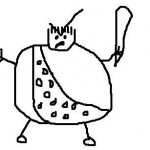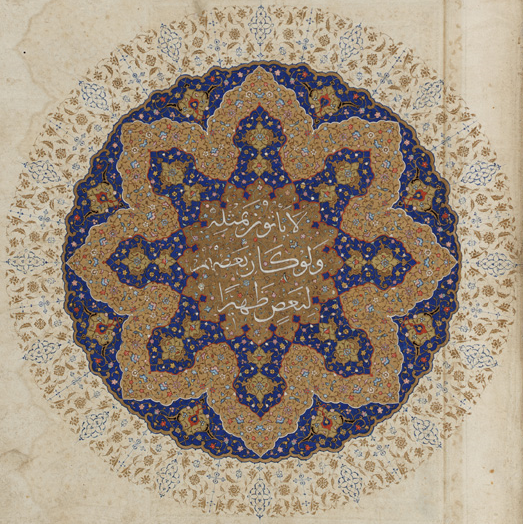I have already written about the ways that growing up in fundamentalist-evangelical culture made me especially vulnerable to covert incest from my father. There is a flip side to the father-daughter craze in Christian patriarchy, though. I am here to bring you two stories: and one of them isn’t about me!
In what would have been my high school years, a miracle happened. Sven, my best friend from my early childhood, came back to my church. We were fourteen. We had been estranged for about three years while his family lived in another state. But we quickly reconnected (not least due to my idealistic hopes that we could pick up where we left off, and some aggressive book-lending). But the stakes were so much higher now.
Sven’s mother had all but declared me a slut at seven years old, a fact I’ve alluded to several times as it was formative for my conception of myself (in a quite negative way that required overcoming later). But now that we actually had secondary sex characteristics, my apparent sluttitude was all the more threatening. Who knew what debaucheries my round, pimpled face might concoct? Meanwhile, I dreamed that Sven would take me away somewhere to live in childless bliss in the mountains. In retrospect, Sven could hardly have taken me across his driveway without asking his mother’s permission. But who is better at sustaining ill-fated wishes than a lonely fourteen-year-old?
Now, my church’s strict courting rules forbade such hedonistic abandon as dating, driving with the opposite sex, touching in any context other than saving one another from a burning building (and even then you’d better pray for deliverance first!), talking in private or being together at night for any reason other than church (the full moon is the devil’s spaceship). What does this lurid constellation of imagined sexual depravities create when mingled with the fitful urges of the pubescent body?
Fear, frustration and fury.
Fear because sex lurks everywhere, waiting to drag you underground and eat you alive like the slavering sin-monster in Frank Peretti’s novels.
Frustration because of the “besetting sins” (crushes on the attractive sex) that waylay you constantly despite your best efforts to think about the Word all the time.
Fury because it’s the fault of all those demons and worldly people with their voodoo music that you have to fight so hard to stay pure.
Now, I am about to admit something I never admitted to Sven, his mother, or anyone until long after I’d left fundamentalism.
I loved Sven.
Loving people was bad. Loving people was SERIOUS. Our courtship rules stated that you should never say the L-word to someone outside your family until you were ready to put a ring on it. Oh, and a girl should never say it first.
I didn’t say it. I thought it really hard. I whispered his name off the back porch of a church family’s ranch, where nobody could see or hear me. Ladies and gentlemen, I did this with my eyes wide open. I dared to love Sven. I abandoned a tiny bit of my faith in that moment, so desperate was I to love Sven. I knew that I was defiling my heart. I didn’t care. I thought it better to be a stained and damaged prize than to live dishonestly, denying that what I felt was love. God could see right through me, couldn’t he? How ridiculous was it to pretend that I was unattached? I challenged God that night on the porch. I was fifteen years old, and I loved Sven. God could either give him to me as a husband or strike either of us dead.
Yeah, I was fifteen.
None of that happened, of course. Sven and I had our short and sweet moments. I remember looking into his eyes and feeling like I was crashing over a waterfall. I remember the day that he sought me out after church multiple times, leaning over one of the tables to smile at me. I remember slipping away experimentally and being overjoyed when he pursued me. I remember him telling me that I was one of his best friends. I treasured the times he confided in me.
I may have been fifteen, but I did love that boy with all sincerity. I cherished his quirks and strove to support him in his goals. I encouraged him to go to college. I bought him expensive presents, exactly to his taste. I worried when he was depressed, bolstered his faith when it was faltering, and above all made myself the helpmeet to him that I hoped to be later. Sven was my safe place. He never gave me orders, always listened, never barked or dismissed me without a fair hearing. I thought that if I had to marry somebody, at least I’d never have to work at submitting to him since he obviously didn’t care. And I did this all while declaring myself his friend, hoping that some day he would ask the question that would lift us out of limbo and make me, like Boaz did Ruth, an honest woman.
What on earth does this tiny, invisible rebellion have to do with emotional incest?
Well, everything.
I am not married to Sven today. I am not part of my church. I am not in contact with Sven or his family. The end was sudden and decisive, brought about by a vortex of causes that spun endlessly around one problem: I was the other woman.
In the last years of my fundamentalist sojourn, as I was about to turn eighteen and exert what independence I could, a thought occurred to me.
Women in Christian patriarchy frequently transmute their desires for equal partnership and respect from their husbands into an emotionally incestuous relationship with their sons.
Of course, the thought wasn’t quite so well developed then. It was also punctuated with pangs of why won’t she like me, I buy her flowers and clean her house and watch her kids and if she dies he might be able to marry me but now I have to spend the next three days in repentance for entertaining that thought. But I had noticed a dynamic that wasn’t specific to Sven and his mother. It existed with every mother and son I knew. Even that early, I had figured out that when you reduce the marital relationship into a master-subordinate equation, the affection, respect and mutual enjoyment get pushed out somewhere else.
Sven’s mother had a laid-back husband. He was a lot like his son: didn’t order her around (much), mostly minded his own business, and only asked that the home be kept clean (a task to which he contributed, as well). This placed Sven’s mother, a dominant personality with cartloads of energy, in a dilemma. How could she demonstrate that she was fulfilling her role as a submissive wife if her husband never asked her to do anything?
Sven’s mother went out of her way to invent ways to submit. She insisted on being home at a certain time every day, no matter what her activities, to have dinner ready for her husband. She asked his permission to make field trips with the children. She sought her husband’s authorization for every insignificant activity of her life. And in doing so, she transformed him from her partner to her regional manager. She punched in her time cards and he wrote her paycheck.
Now, a type-A personality like hers naturally doesn’t compartmentalize itself into mere work and routine. She was a dynamic personality with strong passions and a thirst for adventure. Was she going to find adventure, romance and companionship with her regional manager? No. That’s what sons are for!
The great thing about sons, in fundamentalist culture, is that you don’t have to obey them. My church retained the parental right to rule over the patriarchal one, so grown men could be compelled to “honor” their mothers by mostly doing what they asked. So when Sven’s mother wanted someone to share her interests – to watch movies with her, to go on trips, to have lighthearted discussions – she turned to her son.
And so, as America wobbled and steadied itself after the shock of 9/11, another aftershock hit her with a more immediate force. She had turned to Sven, but Sven was starting to turn to me.
I was not blind, nor was I particularly bashful or even tactful. “Your mom hates me,” I told Sven. “She likes Jennifer. She wants to get rid of me so you can be with Jennifer.”
“She doesn’t hate you,” he responded reluctantly. “I’m not attracted to Jennifer like I am to you. She’s afraid something might happen.”
It was the frankest thing he’d ever said.
I have no idea what happened to the conversation after that point. My ears were ringing. He admitted he felt something for me! Even if it was a dangerous something. I felt a rush of validation and vowed to protect the chastity of both of us by upping my efforts to be the perfect pre-helpmeet.
Jennifer was, in many ways, like me. She was outspoken and energetic and loved playing practical jokes. She had stepped in to take my place while Sven lived away, playing in the woods and joining him for video-gaming sessions. What I did not realize was that I was in the midst of a dynastic arrangement. Sven’s mother and Jennifer’s mother were the best of friends. My fantasies about flight into the wilderness and a tiny cabin filled with cats and eccentricities and Sven was obviously not going to help either of them achieve their fantasies of blood connection. And so, a campaign was launched to pry my hands off Sven (as if we had ever touched!) and drop Jennifer solidly into his lap.
Sven and I couldn’t drive together. Sven and Jennifer could.
Sven and I couldn’t talk alone. Sven and Jennifer could.
Sven and I couldn’t see each other without an excuse. Sven and Jennifer could.
What was going on here?
I think that things transpired the way they did because Sven admitted his attraction to me. I was opinionated. I was dangerous. I had an unbelieving father and was prepared to yank my own uterus through my bellybutton to avoid being a stay-at-home mother. I possessed something that Jennifer did not: a lure strong enough to threaten the bond between Sven and his mother. I had openly challenged her micromanagement of his life. Jennifer accepted it as normal.
The great irony of American Christianity is that the fundamentalist-evangelical idolization of marriage produces a lifestyle that strips marriages of all their rewards. All the spontaneity, affection, teasing, playing, adventuring, learning, growing, deepening, overcoming conflict, admiring of one another’s wisdom and maturity – all this stuff dies in the headship-submission model of marriage. What you’re left with is a boss and his employee, who hopefully like each other but are fixed in their relations to one another. Their relationship cannot grow because growth would shatter the mould.
And so fathers turn to daughters for admiration and affection, for the sense of validation they no longer get from their wives – and I would argue that they can’t get the same admiration or affection from their wives in this paradigm, because the wives are already commanded to do those things. Wives are compelled to love their husbands; husbands, therefore, have nothing to work for. Nothing to earn. Ironically, once fundamentalist-evangelical culture fully enshrines the stay-at-home daughter ideal, the same luster will probably fade away. Whenever you try to mandate love and respect, you create the conditions that prevent you from ever genuinely receiving those things.
Mothers turn to their sons for a partner they can share things with, an individual who can be influenced, who can change and evolve without threatening anarchy. A woman can take her son to a place she wants to go without checking in with him to see if he’d prefer someplace else. She can set the agenda for what they do and when they leave. She can ask her son’s opinion and not be compelled to agree with him. She can, in short, have a surrogate husband she doesn’t have to obey.
I fell afoul of emotional incest on two fronts: my father’s efforts to make me “his little girl,” and my star-crossed would-be lover whose mother could not accept “another woman” in his life without vetting her first. Emotional incest is endemic to Christian patriarchy because that is the place where marriages go to die. In Christian patriarchy, the family is a little state with an executive head of government and a harried chief-of-staff. The husband’s elevation makes him lonely; the wife’s subjection makes her lonely, too. Patriarchal marriages are so tightly ordered, so constricting that the emotion, the life, the love and the spontaneity – the building blocks of romance – all ooze out the cracks and seep into the relationships of parents and children. If your husband is your boss, your son is your husband. If your wife is your servant, your daughter is your wife.
Somebody, please, break the cycle.
















